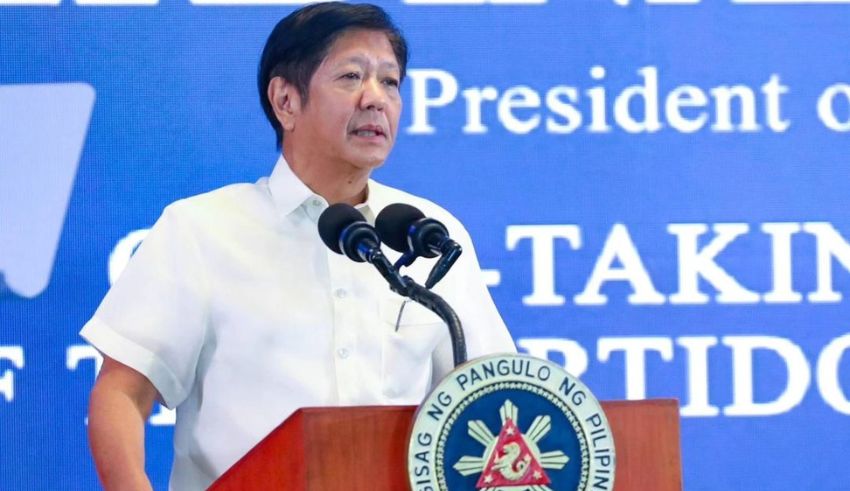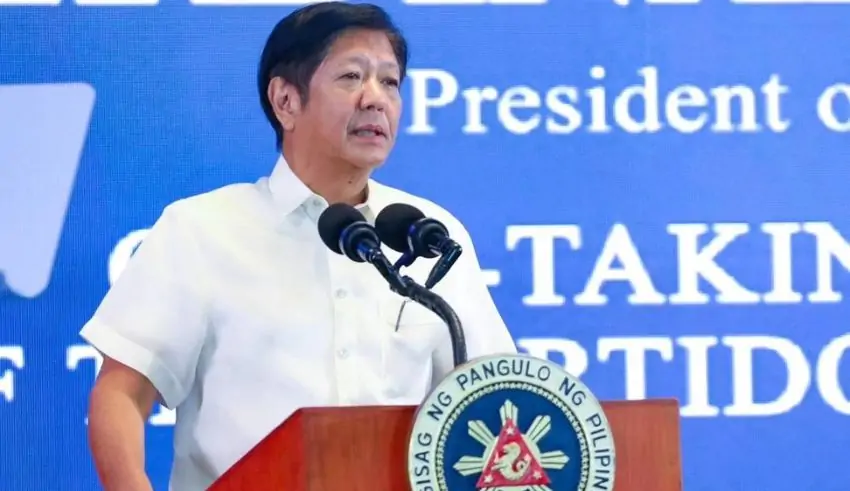

(C) Presidential Communications Office
Philippine President Ferdinand Marcos Jr. has issued a stern warning to China regarding the ongoing tensions in the South China Sea. He stated that any actions resulting in the death of a Filipino would be considered “an act of war” and would prompt a corresponding response from the Philippines. This declaration marks a significant escalation in the rhetoric surrounding the disputed maritime region.
President Marcos Jr.’s warning delineates a ‘red line’ that China must not cross, emphasizing the gravity of the situation and the potential consequences of any aggressive actions. This clear demarcation is intended to deter further provocations by underscoring the Philippines’ readiness to defend its citizens and sovereignty at all costs. By setting such a boundary, Marcos Jr. is signaling to Beijing and the international community that the Philippines will not tolerate any actions that threaten the lives of its people.
The South China Sea has been a longstanding point of contention, with both the Philippines and China, among other nations, claiming parts of the region. Recent incidents involving Chinese patrol ships firing water cannons at Philippine boats have escalated tensions. These confrontations highlight the volatile nature of the dispute, where minor incidents can quickly spiral into major conflicts. The South China Sea is strategically significant, housing vital shipping lanes and potential underwater resources, making it a critical area for regional power dynamics.
The territorial disputes in the South China Sea date back several decades, rooted in historical claims and geopolitical strategies. China’s nine-dash line claim encompasses almost the entire South China Sea, conflicting with the Exclusive Economic Zones (EEZs) of several Southeast Asian countries, including the Philippines. In 2016, the Permanent Court of Arbitration in The Hague ruled in favor of the Philippines, rejecting China’s expansive claims. However, China has refused to acknowledge the ruling, continuing to assert its presence through various military and civilian activities.
The United States, bound by a mutual defense treaty with the Philippines, is compelled to defend the Southeast Asian nation should it come under attack. This treaty, established in 1951, commits both nations to support each other in the event of an external armed attack. The involvement of the US adds a layer of complexity to the situation, as any conflict could potentially escalate into a broader confrontation involving major global powers. Washington has reiterated its commitment to defending its allies in the region, further intensifying the stakes.
Other countries in Southeast Asia, such as Vietnam, Malaysia, and Brunei, also have claims in the South China Sea and have experienced similar tensions with China. These nations are closely watching the developments between the Philippines and China, as any escalation could impact the broader regional security environment. Additionally, countries like Japan and Australia, which have strategic interests in maintaining freedom of navigation and regional stability, are likely to play a role in diplomatic efforts to de-escalate tensions.
The international community, including ASEAN and the United Nations, has called for peaceful resolutions to the disputes in the South China Sea. Diplomatic dialogues and multilateral negotiations are seen as essential pathways to avoid conflict and ensure stability. The Code of Conduct (COC) negotiations between China and ASEAN aim to establish guidelines for behavior in the disputed waters, although progress has been slow.
President Marcos Jr.’s declaration at the Shangri-La Dialogue in Singapore underscores the delicate balance of power in the South China Sea. His statement serves as a reminder of the Philippines’ resolve to protect its sovereignty and the serious implications of any military escalation in the region. The situation requires careful navigation to avoid triggering a conflict that could draw in multiple nations. Achieving lasting peace and stability in the South China Sea will necessitate sustained diplomatic engagement, mutual respect for international law, and a commitment to peaceful resolution of disputes. As tensions simmer, the global community remains vigilant, hoping for a resolution that maintains the delicate balance of power and ensures the safety and prosperity of all involved.
As President Donald Trump declared economic independence through new tariffs he placed significant harm on developing countries in Southeast Asia…
Once again crowned the world's best entrepreneurship nation in the Global Entrepreneurship Monitor (GEM) Report, the UAE has claimed the…
At age 24 Mykhailo Polyakov from America violated regulations when he came to North Sentinel Island which authorities guard to…
The much awaited action thriller Runner is getting boosted with a stellar cast. Directed by Scott Waugh, the film has…
Emirates has launched a new product, Emirates Courier Express, which promises faster, more reliable, flexible express shipping to customers around…
Nintendo has announced the new Switch 2 to stir the gaming world with some fabulous features. This console of the…
This website uses cookies.
Read More